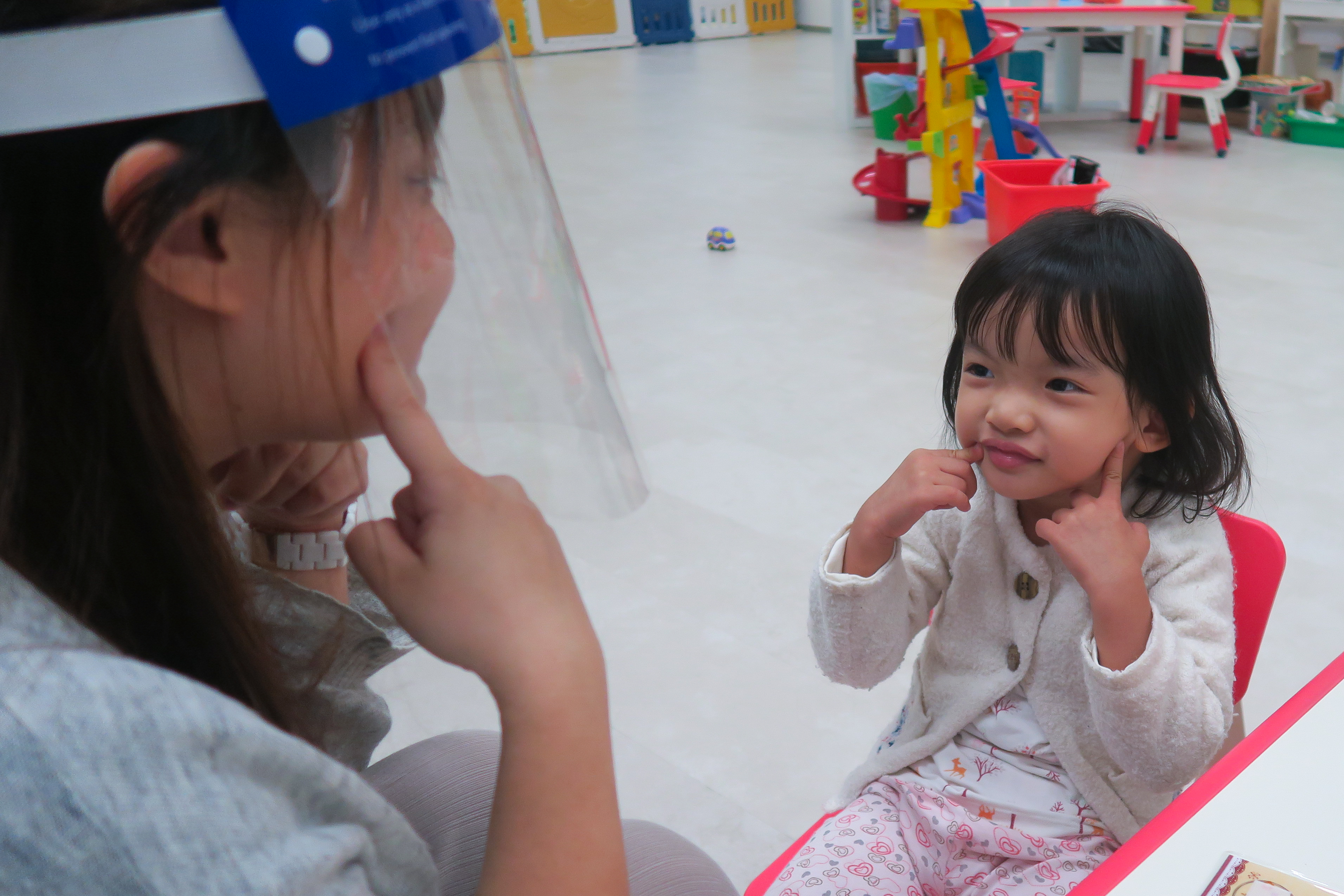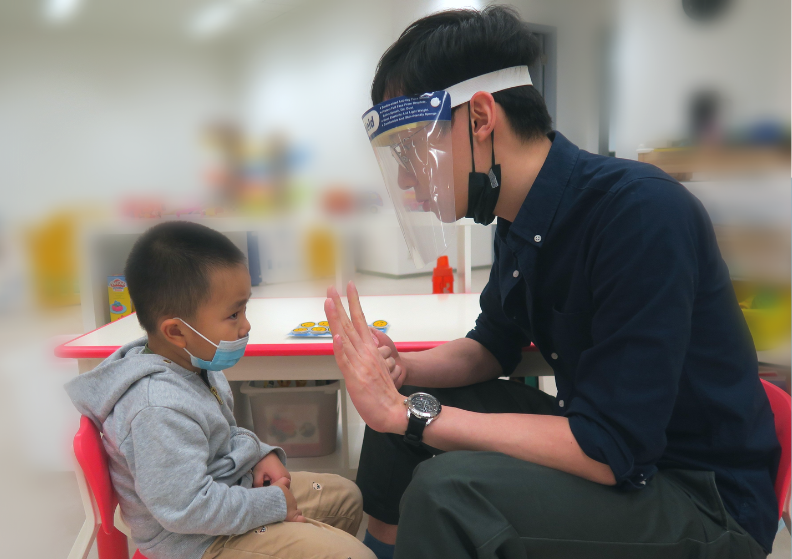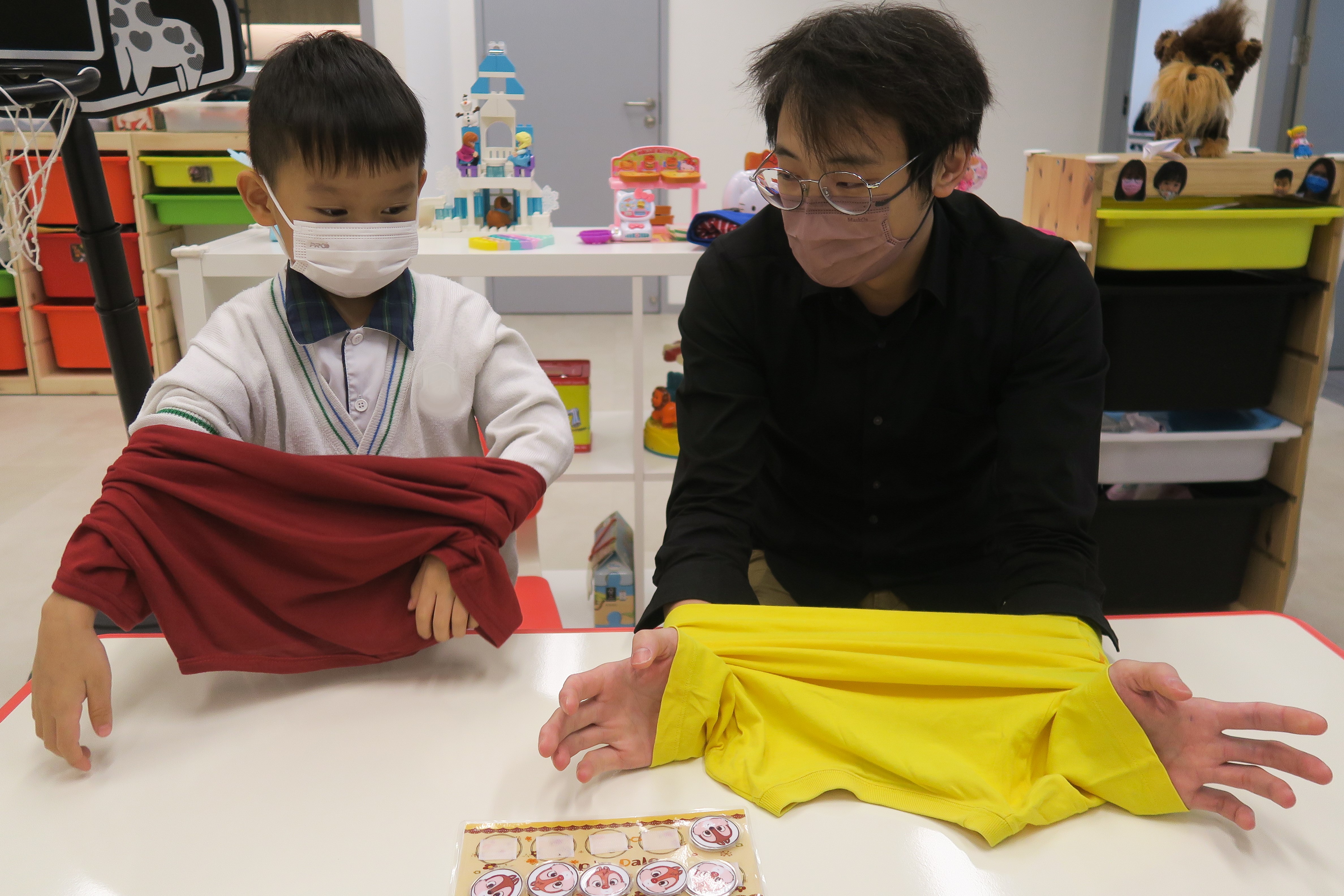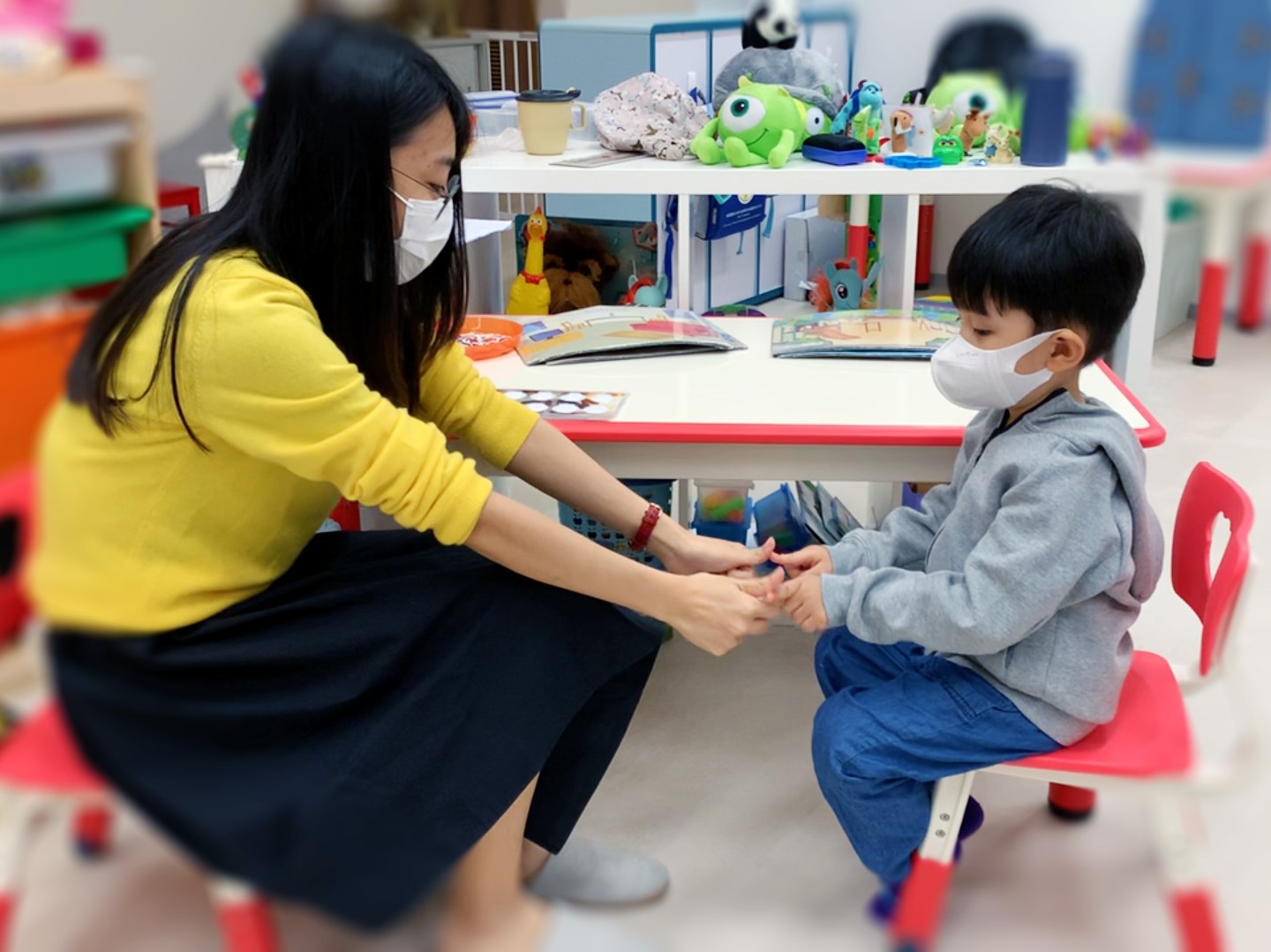Autism Partnership Foundation
Charitable Organization
Charitable Organization
Together We Create a Better World for People with Autism
“The power of social games”
Some children with ASD like playing with others, yet they lack social skills. 5-year-old Sum had similar situation when he came to our centre. He was neither able to invite other children to play together, nor able to deal with conflicts while playing games. The therapist had found that Sum liked playing social games, therefore she taught him the way to invite others, and to seek help from adults when his toys were being snatched. In the later stage of his treatment, the therapist used social games as a reinforcement for Sum’s learning progress.

“Live a healthier life”
Yau always showed resistance in eating and was a picky eater when she started the treatment. She even did not brush her teeth for several months. In this case, the therapist helped Yau eat more willingly and introduced the procedures of teeth brushing. Yau gradually started eating and brushing teeth under the guidance of the therapist. She can say “yes” to express her desire to eat, and can also complete all the steps to brush her teeth. Good eating practices and oral hygiene habits of Yau are thus established.

“Follow basic instructions”
Yu was thrilled to play along with the toys in the centre. He often refused to return to his seat and could not strictly follow the therapist’s instructions as well. The therapist gradually enhanced the compliance of Yu and taught him how to comply with some basic instructions. Yu’s compliance and comprehension have improved. He can now return to his seat immediately when he is being called, even though playing with his lovable toys.

“Getting dressed independently”
Getting dressed independently is an important life skill that children with autism have to spend time to learn. Chi could not distinguish the front and the back, and the left and the right, and always wore clothes backwards. The therapist broke down the steps and taught Chi dressing skills, then guided him to follow the steps to put on clothes in a correct manner. During the treatment, the therapist systemically reduced assistance little by little. At the end of the treatment, the therapist only gave two verbal instructions - “put down the coat” and “put on the coat”, and Chi could complete all the steps independently!

“Do you like children’s songs?”
Can you imagine that children refuse listening to popular children’s songs? Hang was reluctant to listen to a specific children’s song, and some advertisements and railway broadcasts. He closed his eyes or yelled immediately when he heard the song. Hence, the therapist trained Hang’s emotional control systemically by playing all kinds of children’s songs and the song he disliked alternately. Hang has gradually improved, he is now able to stay calm while listening to that song, and can even sing and dance with the therapist together.

Sum, Yau, Yu, Chi and Hang were invited to present their experience in receiving ABA services with Autism Partnership Foundation (operating in Hong Kong) (APF, HK). Yu, Chi and Hang are past beneficiaries of APF, HK, Sum and Yau are current beneficiaries of APF, HK.